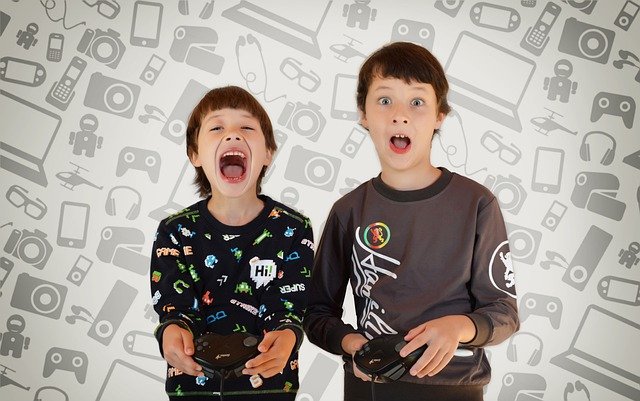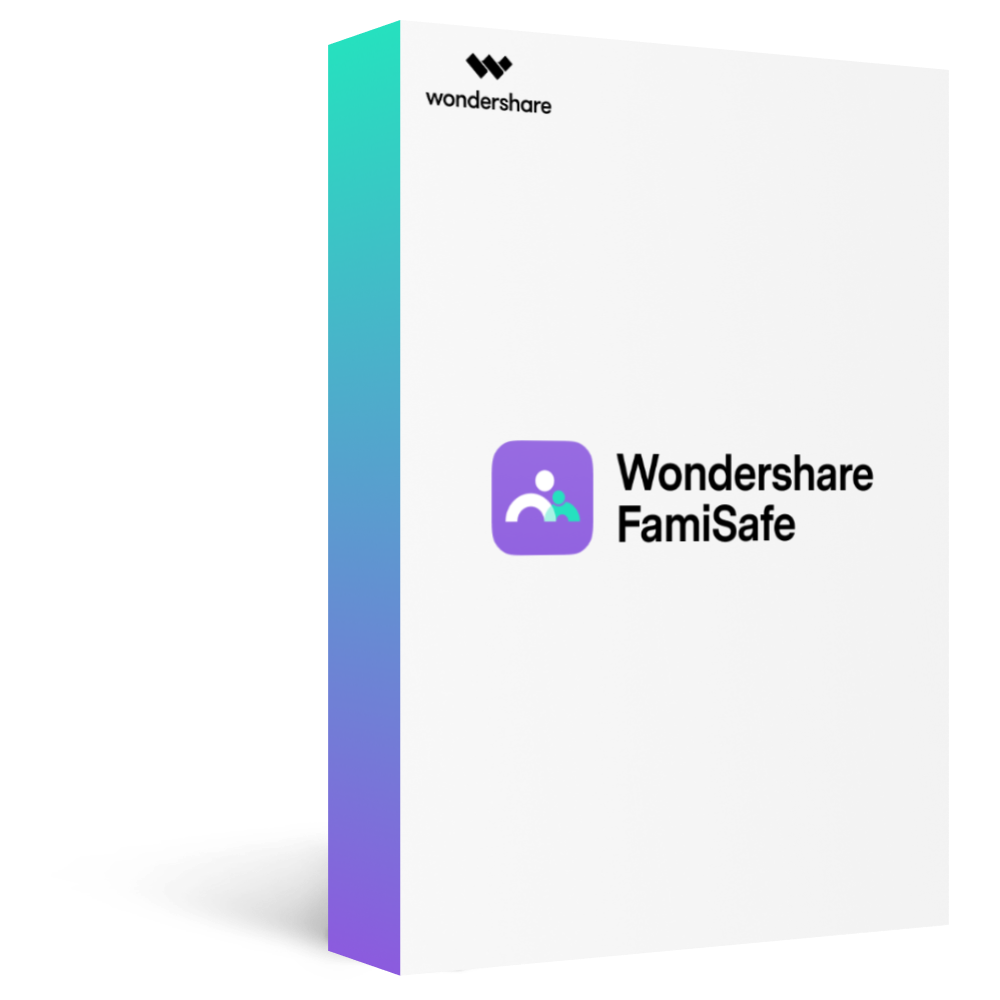The Most Reliable Parental Control App
FamiSafe lets parents control screen time, track real-time location and detect inappropriate content on kids' devices.
Every parent wonders if their child is having a safe experience on the internet when playing their favorite multiplayer games. The problem is that even if parents sit with their child and try to understand the conversation their child is having with the outside world, they are faced with jargon or slang that they have no idea of.

So for parents to make sure their child is protected from both cyberbullying and unnecessarily offensive words, here is a list of game slang that every parent should know.
Part 1: Commonly Used Game Slangs
This section of the article will go through game slangs that are not offensive and quite common in the gaming community.
GJ: Good Job
A symbol of appreciation, when a person is said GJ by any of his teammates, it shows that they are proud of something he/she has done. This slang can be used during the game when a spectacular performance is observed or after the game as a form of acknowledgment.
Example: “Your performance was outstanding, GJ!”
GG: Good Game
Similar to GJ, GG is also a form of nod, only this time it’s for the enemy team. It is usually done at the end of the game. As a form of congratulations, when the multiplayer game ends, players will respect the enemy team and type GG before losing gracefully.
Sometimes GG is also followed by a WP, which stands for well played. In some games, the losing side might also surrender after typing GG as a form of respect.
Used to annoy
Although it may amaze some parents that a positive abbreviation like GG can also be used negatively, if a team dominated the opponent team the entire game, they might type GG just before finishing the game, which serves as a form of sarcasm. However, this usage is much less common than the standard positive one.
GLHF: Good Luck Have Fun
Another abbreviation used for the enemy team, GLHF, is used to wish good luck to the opponents. It is often done in good faith and sends a positive message to the enemy team.
As a form of goodbye
GLHF can also be used when a team member is signing off, but his/her teammates are still playing. The leaving member will wish his/her team GLHF for their next games.
Example: “GLHF” - At the starting of the game.
AFK: Away from Keyboard
When a teammate wants to take a short break, an AFK message is sent. This message is used in both in-game lobbies and online game sessions, and it shows that the teammate will be away for a while.
Example: “I’ll stay AFK for a while, you guys play on.”
OP: Overpowered
OP is used when an item, character, or mechanic is way too powerful than the rest, usually in an unfair manner. This is considered a bad thing as gamers would generally want a game to be balanced. In addition, OP items and characters usually take a lot less mastery to execute, which removes the skill component from multiplayer games and favors unfairness.
Some games will purposely add OP items, characters, classes, and mechanics, so they look a lot better than other game elements. Games like League of Legends are typical examples that regularly add new OP players and then nerf them in future patches.
OP is also often used by beginners of the game that have no idea how the balance system works, claiming that a certain element is unfair. However, this is usually not the case as beginners can always understand the balance of a new game and misjudge an element.
Example: “Sett is an OP champion, Riot should consider nerfing her!”
Pog: Play of Game
A person’s performance might be assigned the abbreviation POG when he/she does a spectacular action that changes the course of the game. POG’s are often used positively and serve as a form of acknowledgment. Although it’s usually used for teammates, opponents can also perform POGs, changing the game’s outcome.
Sarcastic usage
POG can also be used negatively by typing ‘POG’ whenever a bad play is observed.
Example: “POG! Now we finally have a chance of winning this game.”
Origin of the word POG
POG's meaning comes from Twitch viewers in 2012, cheering using the word “PogChamp” whenever an event of excitement takes place. Then a streamer named ‘gootecks’ used the phrase “Pog Champions’ and Twitch created an emoji for the relevant abbreviation featuring ‘gootecks’ face.
Another closely related term is “Poggers,” which was also spawned by Twitch viewers in 2017 and resulted in another emote.
TK: Team Kill
TK is used when a person kills their teammate. TK is not possible in all games and only happens in games where ‘friendly fire’ is on. For those who don’t know, friendly fire is when the player can damage not only enemies but also their teammates. This is usually observed in FPS (first-person shooter) games, and players are generally required to play with a lot more caution.
A person who performs the act of TK is called out for TKing, and it can be done both accidentally and purposely.
Players who are frustrated or annoyed by a specific teammate might also start TKing, as a form of grieving and ruin everyone’s game experience.
Example: “Sorry guys that was not an intentional TK won’t happen again.”
Enlighten with the risk associated with the teen's slangs by playing this video.
Part 2: Mean Game Slangs
Now, as we are done with positive slangs, here are some possible negative slangs parents should watch out for when their child is interacting with the online world.
Noob
A noob is not necessarily a bad word. It simply means someone new to the game and lacks experience. However, toxic players often negatively use the word by saying noob to people who might just be having a bad day.
Example: “Didn’t expect much from him in the first place, he’s a noob after all.”
Hacker
Another word that is not offensive in any sense, but the way toxic people use it may suggest some level of negativity. Hackers are people who ‘hack’ a game to gain some unfair advantage. Hackers ruin the game for everyone as no gamers enjoy playing against cheaters. Quite often, players will also use the word ‘hax’ to reference cheats used by the hackers.
Example: “No way he’s that good, that person is a hacker.”
EZ
Easy, usually sent after the game. Compared with GG, players who send EZ to rivals show no sportsmanship.
Part 3: How to protect kids from language violence in the games and communities?
Parents can not always hover over their children to watch for offensive language, where software like Wondershare FamiSafe indeed comes in handy. FamiSafe lets parents monitor their children and come with a super easy interface that enables even non-techy parents to use the software without any problems.
The application not only alerts parents of said offensive words but will also update on inappropriate social media posts, child’s location, inappropriate sites. Moreover, it will allow parents to limit the time children spend on certain devices.
It is a good option for parents to consider whose children spend most of their time online. In addition, it provides an easy and convenient way to monitor their kids without having to stand by their shoulders all the time. The service is available across multiple platforms, including Windows, macOS, iOS, ChromeOS, and Kindle Fire.
Following are the ways you can stop online gaming language violence to keep your children safe:
1. You can limit the Screen Time, preventing your child from playing games frequently.
2. The Activity Report allows you to understand how much time your child consumes on their devices.
3. It enables you to block specific apps, websites, and even suspicious language used on social media texts.
4. Even if your child is not at home, you can check their real-time location with FamiSafe to ensure that they are visiting a safe neighborhood.
5. If you feel the online games are inappropriate for your child’s age, then you can easily block them on their device.
Wondershare Famisafe
FamiSafe lets parents control screen time, track real-time location and detect inappropriate content on kids' devices.

Conclusion
So this concludes our article for game slangs parents should know. It is important to know that not all of these words will always scream offensiveness, and only after the context of the situation is understood, an action should be taken.
